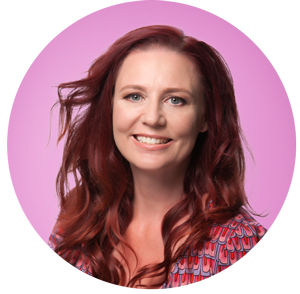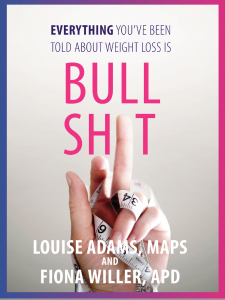I’m back with some sterling examples of how Novo Nordisk genuinely care about human health. If you haven’t already, please read Parts 1 and 2 of Risky Business, for a deep dive into Novo’s clever glow-up of their weight loss drugs as cardiovascular lifesavers.
In spite of ongoing global supply shortages of Ozempic, Novo have continued to roll out their more expensive weight loss version – Wegovy – to more and more countries. They recently launched in China, and of course it’s on the market here in Australia.
Semaglutide is the active ingredient in Ozempic, the diabetes drug, and Wegovy requires a double dose of it. Blame for semaglutide supply shortages is often attributed to high ‘consumer demand’ but there’s other factors at play which aren’t being publicised.
Top Secret Factories
Rather than outsource production like most pharmaceutical companies do, patent-hoarding Novo keep the entire process of making semaglutide in-house, thereby protecting its production secrets. Semaglutide is only produced in two locations – one in Kalundborg, Denmark, and the other in a Novo-owned factory in South Carolina.
Novo are notoriously cagey about the production process of their GLP1 drugs. Sounding more like a Bond villain than an executive in charge of life-saving diabetes medicines, Novo’s senior VP of pharmaceutical ingredient manufacturing Michael Hallgren said that Novo want to keep their production strategy a secret, telling Bloomberg “Nobody else in the world is doing what we’re doing…that’s our crown jewel.”
|
|
Novo have been scrambling to expand their in-house production of semaglutide but they’re not up and running yet. Production delays may be explained by a spectacular string of bad luck: during 2024 alone there were four separate fires at their facilities in Denmark. Novo have not revealed the causes of these fires except to assure the public that nothing ‘criminal’ has been going on. The largest fire, at a construction site in Kalundborg, where they are constructing a new production facility, was blamed on construction workers who apparently were working illegally. In the wake of the fire, serious concerns were raised about Novo’s use of foreign labour and lack of safety plans, including not having first aid equipment on site and no fire evacuation planning.
|
|
In keeping with Novo’s shroud of secrecy, no-one from Novo Nordisk Engineering (NNE), the in-house management company responsible for the construction site, is able to speak to the media, having signed agreements not to speak to the press. And Novo Nordisk refused to give interviews about the fires.
Yet they’ve been bragging about doubling USA prescription rates for their weight loss drugs since the beginning of 2024. This begs the question – without new production facilities in operation, how have Novo managed to increase supply?
Take From The Poor, Give To The Rich
In December 2023, Novo Nordisk withdrew all of its semaglutide from Russia. To ensure that diabetes patients weren’t left high and dry, Russian authorities had to allow several pharmaceutical companies to produce off label versions of semaglutide, without the permission of Novo Nordisk.
Then, in January 2024 Novo stopped supplying human insulin pens to South Africa, leaving four million people with diabetes forced to resort to using insulin vials – a much more complicated method of injecting which was largely abandoned over a decade ago. In richer countries, analogue insulin is more frequently used as it controls blood sugar more effectively, but lower and middle income countries mostly rely on human insulin, which is cheaper.
Russia and South Africa constituted a significant proportion of the SELECT trial subjects, but apparently these countries have now served their purpose.
|
|
Novo’s abandonment of diabetes patients was just getting started: in November 2024 Novo announced that they were stopping production of human insulin pens globally, reverting back to human insulin in vials that people with diabetes would then have to inject using syringes.
Novo’s move frees up millions of pens, allowing them to sell more Ozempic and Wegovy to lucrative markets (ie, the United States). Candice Sehoma, advocacy advisor for Médecins Sans Frontières (MSF), didn’t hold back:
‘We are alarmed by Novo Nordisk’s double standard shown toward people with diabetes in low- and middle-income countries. While the corporation continues to profit immensely by supplying newer, more expensive insulin and semaglutide pens (Ozempic and Wegovy) to wealthier nations, its decision to withdraw human insulin pens may push people with diabetes in resource-limited settings, who rely on insulin for survival, to revert to using vials and syringes, which virtually no-one uses anymore in high-income countries.’
The outrage led to a MSF-organised demonstration, held on International Diabetes Day in November 2024. Hundreds of protestors picketed the South African offices of Novo, demanding that they reverse their decision, and also demanding a price reduction for insulin pens.
|
|
In response to all the negative publicity, Novo have indicated that they are ‘in talks’ with South African health officials, claiming they had ‘already’ offered to supply analogue insulin pens. But Candace Sehoma is concerned about the potential cost of this new offering, which hasn’t been clarified: Novo aren’t exactly renowned for affordable pricing.
It’s wonderful to hear a group like MSF is calling out Novo on its bullshit, and heartening to see the South African public support such an important issue. But Novo are not likely to reverse their decision, leaving countless people with diabetes in low and middle income countries high and dry.
Many people will become sicker and die thanks to Novo’s diabolical strategy of literally taking from the poor to give to the rich in order to service their weight loss market.
There’s been very little attention to these issues, with the world’s media still gushing about the magical health benefits of Novo’s weight loss drugs. But even if the health benefits of semaglutide were enormous, Novo’s behaviour should raise our ethical hackles.
I’ve had enough. I’m off to donate to MSF.
Louise xx
I’m back to work from next week. If you are struggling with issues relating to food, your body, exercise, or with an eating disorder, I can help. I have offices at Flourish Kirribilli, in Sydney, and am also available for online appointments. If you’re a health professional looking for hep with providing weight-inclusive care I also provide clinical supervision, and my books are currently open.


